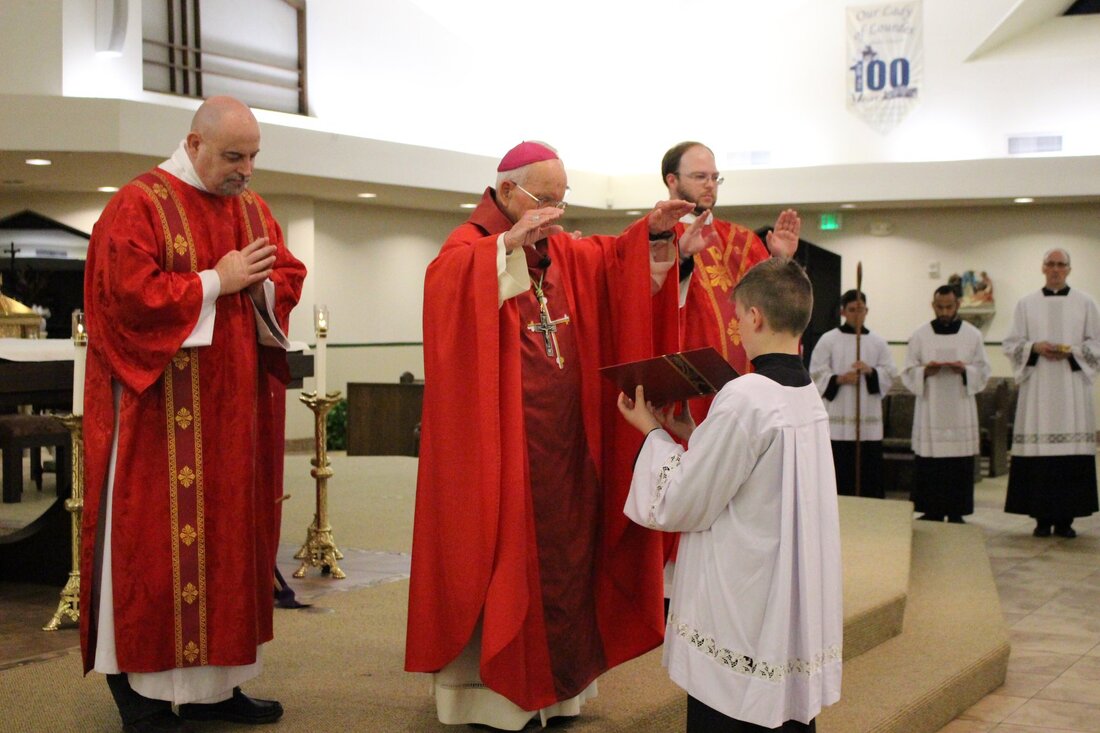|
If you’ve been around the Catholic Church very much, then you’ve surely noticed a priest imposing hands over or laying hands on some object or person, for example, when he’s blessing something or someone, or in the sacraments. In the Mass the priest holds his hands over the bread and wine during the epiclesis of the Eucharistic Prayer, in the ordination of a priest or deacon the bishop lays his hands on their heads before praying the Prayer of Ordination, and in the Sacrament of Reconciliation the priest holds his hand over the person while praying the Prayer of Absolution. This is a symbol of the priest calling down the Holy Spirit to give grace, as we read in the Acts of the Apostles, “Then they laid their hands on them and they received the Holy Spirit” (Acts 8:17). So, extending the hands in blessing is a priestly act of calling down the Holy Spirit, but what is that blessing actually doing for us.
The first blessings we see in the Bible occur in the Book of Genesis. We see Isaac blessing Jacob and Jacob blessing his children and grandchildren. The blessings in Genesis are of fathers blessing their children, as when Isaac blesses Jacob and makes him his primary heir. A blessing can also make someone who isn’t your child into your child. The 12 tribes of Israel are the sons of Jacob, whose name God changed to Israel, except that the rest of the Bible often speaks of the half-tribes of Ephraim and Manasseh. These were Joseph’s two sons, who received a special blessing from Israel, and from that point on they were listed with the sons of Israel instead of his grandchildren. In the book of Judges we read about Micah, who set up a shrine in his land and was looking for a priest for the shrine. One day, a Levite, the priestly tribe, was passing through, and Micah asked him to stay and be their priest, saying, “Stay with me, and be to me a father and a priest, and I will give you ten pieces of silver a year, and a suit of apparel, and your living” (Jdg 17:10). So, a priest, in the Old Testament, is seen as a type of spiritual father. This continues in the New Testament, when St. Paul calls himself a father to those whom he has brought into the faith, “For though you have countless guides in Christ, you do not have many fathers. For I became your father in Christ Jesus through the Gospel” (1 Cor 4:15). In both the Old and New Testaments, the one who blesses, the priest, is considered a spiritual father, because through the blessing of God we become children of God. In the Sacraments, whenever the priest imposes hands over something he calls down the Holy Spirit and that thing changes. In the Mass, the Holy Spirit, changes the bread and wine into the Body and Blood of Christ. In the Sacrament of Holy Orders, a man becomes a deacon, priest, or bishop. In the Sacrament of Reconciliation our sins are forgiven and our souls cleansed. In Baptism the priest lays his hand on your head, you are reborn through water and the Holy Spirit, and you become a child of God. If, then, we are children of God, let us follow the Son of God, Jesus Christ our Lord, in the way we live our lives. Comments are closed.
|
AuthorFr. Bryan was pastor of Our Lady of Lourdes from July 3, 2017 to June 2022. Categories
All
Archives
June 2022
|

 RSS Feed
RSS Feed